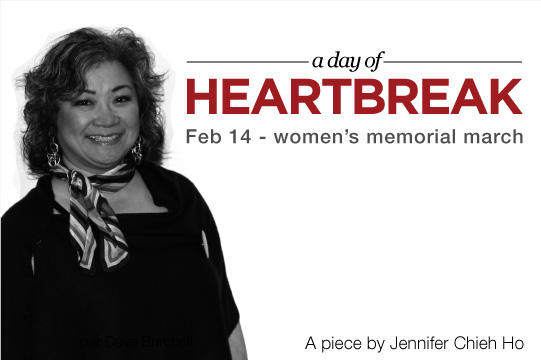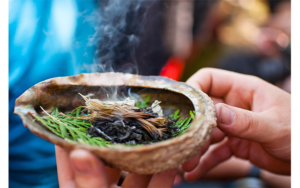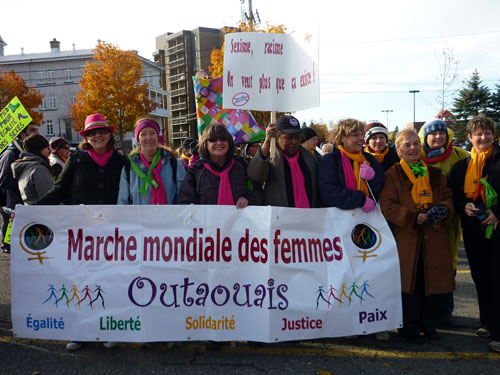
Each year on Valentine’s Day, people smile, hug and greet each other with a joyful “Happy Valentine’s Day!” — for others, it’s a day of heartbreak. For them, February 14 is a day to commemorate their lost loved ones and take part in memorial marches across Canada.
This year marks the 21st Women’s Memorial March through the Vancouver Downtown Eastside, an area where many First Nations women have fallen victim to violence. Nationwide, there are over 600 women on the Native Women’s Association of Canada’s missing or murdered list.
“In January 1991, a woman was murdered on Powell Street. Her name is not spoken today, respecting the wishes of her family. Her death was the catalyst to move women to take action leading to this special Valentine’s Day March,” wrote organizers of the march at the Carnegie Community Centre.
Unlike last year’s rainy day, our members were fortunate to have some great weather. I was pleased to be joined by sisters from the UNE BC Region, along with sisters and brothers from the PSAC Vancouver Regional Office, the PSAC Women’s Committee, the PSAC Human Rights Committee and other grassroots organizations.
When we first arrived, we were greeted by a First Nations sister who gave each of us a beautifully decorated card. Each card had a unique proverb honouring the murdered women. Mine read, in part, “death leaves a heartache no one can heal, love leaves a memory no one can steal.”
Before the march started, we gathered inside the Carnegie Community Centre Theatre, where families of the missing and murdered women shared their stories. The speakers showed tremendous strength as they did so. Someone said, “our loved ones are in a better place; they don’t have to suffer anymore. They may be looking at us, from wherever they are, and wanting to tell us that they are alright.”
Outside the center, there were drums, chanting, singing, praying and greetings. A First Nations brother generously gave fresh bannock to activists of all ages; he was content to see smiles it brought to their faces. Close by, an elder conducted a smudging ceremony to attract good spirits and positive influences.
Among the crowd, I saw a woman crying. I placed my hand on her shoulder to comfort her and was rewarded with a giant hug. The emotions were contagious. We cried, hugged, shared stories and supported each other. We were all there for the same reason.
As the march started, thousands filled the streets, carrying banners, pictures, ribbons, posters and handmade quilts in commemoration of those who were taken from us. While most marchers were aboriginal, many others, of all ethnicities, young and old, marched in solidarity.
The crowd stopped at sites where women were last seen or were found murdered. Each stop was acknowledged by a cedar smudging ceremony. The crowd attracted others who joined the march as it moved along. And just like they do each year, eagles joined the march from above.
The march ended with a candlelight vigil to commemorate the missing and murdered women of the Downtown Eastside.
Being part of this was a great and unforgettable experience. It’s a reminder to keep fighting for women’s rights and for justice for our stolen sisters.
Jennifer Ho
Regional Vice-president of the B.C. and Yukon region
Union of National Employees



